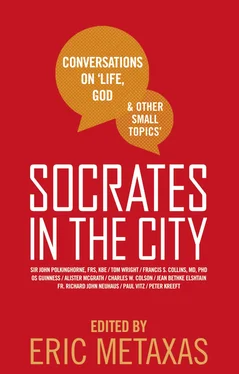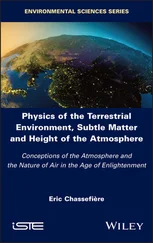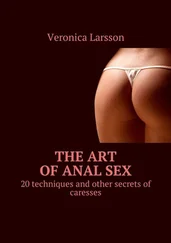So, the fact that there is cancer in the world, which is, undoubtedly, an anguishing aspect of the world and a source of grief and anger to us, is, at least, not gratuitous. It is not something that a God who was a little more compassionate or a little more competent could easily have removed. It is the shadow side of the creativity of the world. It is the necessary cost of a creation allowed to make itself. Now, you could argue whether it is a cost worth paying. I am not suggesting for a minute that this consideration I have been laying out in the last couple of minutes solves all the problems of evil and suffering, but it does at least help us. I say that it seems to indicate these problems are not gratuitous.
We all tend to think that if we had been in charge of creation, we would have done it better. We would have kept all the nice things (the sunsets, the flowers) and thrown away all the nasty things (the disease and disaster), but the more scientifically we actually understand the processes of the world, the more we see how inextricably interlinked all these things are and that there is a dark side as well as a light side to what is going on. That is a small hope, a small help, in relation to what is going on.
I always finish what I have to say, and the conversation will be the most interesting part of the evening. If you are totally convinced by everything I have said this evening, it would have led you no more than to a picture of God as the great mathematician or the cosmic architect. It has been a limited form of inquiry, and there is still much more that one might ask about the nature of God and much more that one might seek to learn about the nature of God; that will have to be found in other forms of human experience. A very important aspect of belief in God is that not only is there a Being who is the Creator of the world, but also this Being is worthy of worship, and I just indicate with a tiniest sketch how I would approach that issue.
I am deeply impressed by the existence of value in the world— something that science directly does not take into account. But our physical world, of which we are a part, is shot through with value, with beauty. For example, music is very interesting. Suppose you ask a scientist as a scientist to tell you all he or she can about music. They will say, “It is neuro-response— neurons firing away to the impact of vibrations in the air hitting the eardrum,” and, of course, that is true and, of course, in its way, it is worth knowing. However, it hardly tells you all you might want to know about the deep mystery of music. Science trolls experience with a very coarse-grained net, and the fact that these vibrations in the air somehow are able to speak to us— and, I believe, speak truly to us of a timeless beauty— is a very striking thing about the world.
Similarly, I think we have moral knowledge of a surer kind than any that we possess. I do not, for a minute, believe that our conviction that torturing children is wrong is either some kind of curious, disguised genetic strategy or just a convention of our society. Our tribe just happens to choose not to torture children. It is a fact about the world that torturing children is wrong. We have moral laws. Where do these value-laden things come from? I think they come from God, actually. Just as I think that the wonderful order of the world and the fruitfulness of cosmic history are reflections of the mind and purpose of the Creator, so I think that our ethical intuitions, our intimations of God’s good and perfect will, and our aesthetic experiences are a sharing in the Creator’s joy in creation.
For me, theistic belief ties together all these things in a way that is deeply satisfying and intellectually coherent, and then there would be many other questions still remaining. Even if there is such a God worthy of worship, does that God care for you and me? That is a question I could not answer without looking into taking the risk both of commitment and ambiguity and looking into personal experience. For me, that would mean looking into my Christian encounter with the person and reality of Christ. That is a subject for another discussion.
Here I am. I stand before you as somebody who is both a physicist and a priest. I am grateful for both of those things, and I want to be two-eyed. I want to look with the eye of science on the world, and I want to look with the eye of my Christianity on the world. The binocular vision those give me enables me to see and understand more than I would be able to with either of them on their own.
But it would be nice to know what you think about these things, and I think the time has come to let you have a go. So, over to you.
Конец ознакомительного фрагмента.
Текст предоставлен ООО «ЛитРес».
Прочитайте эту книгу целиком, купив полную легальную версию на ЛитРес.
Безопасно оплатить книгу можно банковской картой Visa, MasterCard, Maestro, со счета мобильного телефона, с платежного терминала, в салоне МТС или Связной, через PayPal, WebMoney, Яндекс.Деньги, QIWI Кошелек, бонусными картами или другим удобным Вам способом.











